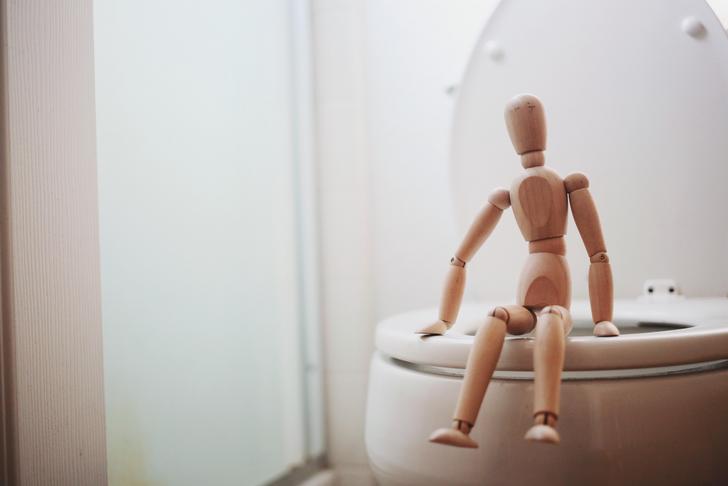10 colon cancer symptoms
 Article Sources
Article SourcesColorectal cancer, sometimes referred to as colon cancer, is a serious and potentially life-threatening medical issue. Usually starting out as small, benign polyps or growths in the colon, colon cancer has the potential to grow beyond control and spread throughout the body.[[1]] Colon cancer is treatable. With early detection from regular screenings, many people can identify colon cancer at an early stage and get lifesaving treatment in time to make a full recovery. One of the keys to early detection is to identify these 10 symptoms of colon cancer and to meet regularly with a doctor for cancer screenings.
Persistent Diarrhea or Constipation
Polyps are growths inside the colon, and they may be small or large. They can irritate the bowel lining or block the flow of waste through the colon, which often causes noticeable symptoms. People with a bowel lining irritated by cancerous growths may struggle with diarrhea that lasts longer than a few days or comes and goes without apparent cause. Constipation is another common colon cancer symptom, as blockages or loss of function slow down the bowels.[[2]]

Advertisement
Changes to Normal Bowel Movements
Apart from diarrhea or constipation, any unexplained changes to normal bowel function may be a sign of trouble. Having to defecate more often or less often, irregular bowel movements, or a sudden change in texture or composition could be significant.[[3]] There are many reasons why someone might experience a change in their bowel movements. Temporary or one-off changes usually aren’t problematic, but any changes that cause distress or can’t be explained might merit a cancer screening.

Advertisement
The Urge to Defecate Without a Bowel Movement
Feeling the need to defecate without an actual bowel movement is called tenesmus, and it can be a symptom of colon cancer.[[4]] If the feeling persists or happens often, it should be mentioned to a doctor. Occasional tenesmus isn’t a worrying sign, and it isn’t indicative of cancer if it happens on its own. However, it may require a screening if it occurs in connection with other colon cancer symptoms.

Advertisement
Cramping or Pain in the Abdomen
Colon cancer may cause pain or cramping in the abdomen.[[5]] Many conditions cause pain or cramping, including other forms of cancer, so on its own, abdominal pain isn’t enough for a determination of colon cancer.[[6]] However, if the pain is severe, localized in the lower abdomen, or has no clear cause, it may be a symptom of colon cancer. This is especially likely if the cancer has advanced or spread beyond the colon.

Advertisement
Feelings of Bloating or Being Full Without Eating
Colon cancer can occasionally cause unexplained feelings of fullness that aren’t connected to actual food intake. This may be related to the endocrine effects of advancing cancer or the physical effect of having a mass growing in the bowel. Bloating is also a potential symptom of colon cancer. While it’s normal to feel bloated on occasion, such as after eating too much or during the menstrual cycle, it shouldn’t be persistent or frequent without an apparent cause.

Advertisement
Changes in Appetite
Cancer growth can send out chemical signals that affect the hypothalamus, which regulates appetite.[[7]] When this happens, a person may feel like they have lost their desire to eat. People lose their appetite for many reasons, including infections, colds, fatigue, or other health disruptions. Loss of appetite only becomes a warning sign if it persists beyond a day or so or there are other signs of cancer.

Advertisement
Rectal Bleeding
Rectal bleeding is never a positive sign, but it isn’t always serious. People experience mild rectal bleeding for various reasons, including hemorrhoids or minor injuries, although colorectal cancer is also a potential cause. Unexplained blood from the rectum is always worth mentioning to the doctor, who will likely perform an exam. If it only happens once, it may be nothing serious, although repeated unexplained episodes call for immediate medical attention.

Advertisement
Blood on Stool or Tissue After a Bowel Movement
People sometimes notice fresh blood on tissue or in the bowl after a bowel movement. This is often caused by hemorrhoids or anal fissures, and while it’s worth mentioning to a doctor, it’s not an emergency if it’s mild and rare. Persistent bleeding when passing stools is a problem, even if cancer isn’t the cause. Frequent or routine bleeding associated with bowel movements should always be checked as a potential colon cancer symptom.

Advertisement
Excessive or Severe Fatigue
Everybody feels tired sometimes, and it’s normal to have occasional bouts of heavy fatigue. If the tiredness is associated with a clear cause, such as exercise or a heavy meal, it’s probably nothing to worry about. Cancer can also cause excessive fatigue, especially in its later stages.[[8]] If a person frequently feels lethargic, or the fatigue or exhaustion interferes with their normal daily activities, a cancer screening may be needed.

Advertisement
Unexplained Weight Loss
Weight loss is associated with cancer for many reasons.[[9]] It sometimes results from diminished appetite, cancer treatments, or the cancer draining energy that would otherwise keep up a person’s weight. Weight loss isn’t an issue if there’s an obvious reason for it, such as a new exercise routine or diet changes. However, rapid, unexplained weight loss is never a good sign and may be a symptom of colon cancer.

Advertisement





